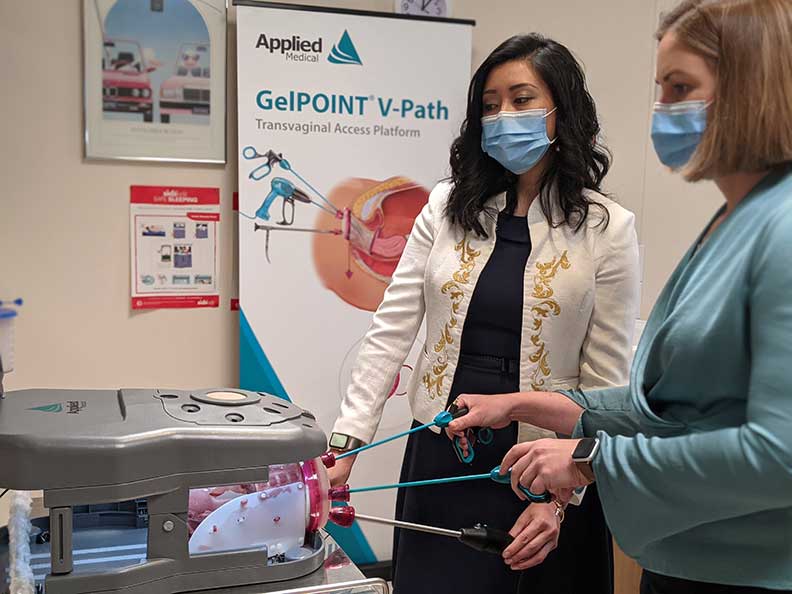New hysterectomy procedure reduces recovery for women
27 October 2021
Women requiring hysterectomies in the northern suburbs of Adelaide are among the first in Australia to access a game changing surgery that halves their time in hospital and reduces time recovering.
The transvaginal natural orifice transluminal endoscopic surgery (vNOTES) is a technique that uses keyhole instruments to complete more challenging hysterectomies and other procedures through the vagina with no cuts in the stomach.
The Lyell McEwin Hospital is the first public hospital in the state and one of the first in Australia to offer this kind of hysterectomy for women.
Figures obtained during a twelve-month trial have indicated that the procedure is performed in less time and requires a shorter hospital stay than other types of hysterectomy. This frees up hospital beds and creates more theatre time for other patients, easing pressure on the wider hospital system.
 Pictured:
Dr Tran Nguyen and Dr Kate Walsh demonstrate the new vNOTES procedure technique.
Pictured:
Dr Tran Nguyen and Dr Kate Walsh demonstrate the new vNOTES procedure technique.
Dr Martin Ritossa, NALHN Women’s and Children’s Divisional Director, said the new procedure requires less operative time, has a shorter recovery period, reduces perioperative pain, and leaves no visible scars.
“The laparoscopic equipment gives us better views of the pelvis and abdomen, allowing us to do more complex procedures that in the past would require a more invasive abdominal approach,” Dr Ritossa said.
“Women recovering from a total laparoscopic hysterectomy, which is the most common hysterectomy we perform at the Lyell McEwin Hospital, spend on average around two days in hospital while the new vNOTES procedure has almost halved this length of stay.”
“It has also reduced the average time spent in surgery by 40 minutes, freeing up theatre time for other patients. This is an enormous benefit for women in our community who will be able to spend less time in hospital and return quickly to their normal everyday lives.”
An estimated 30,000 Australian women undergo a hysterectomy for conditions such as chronic pain, fibroids, heavy bleeding, and uterine prolapse every year.
